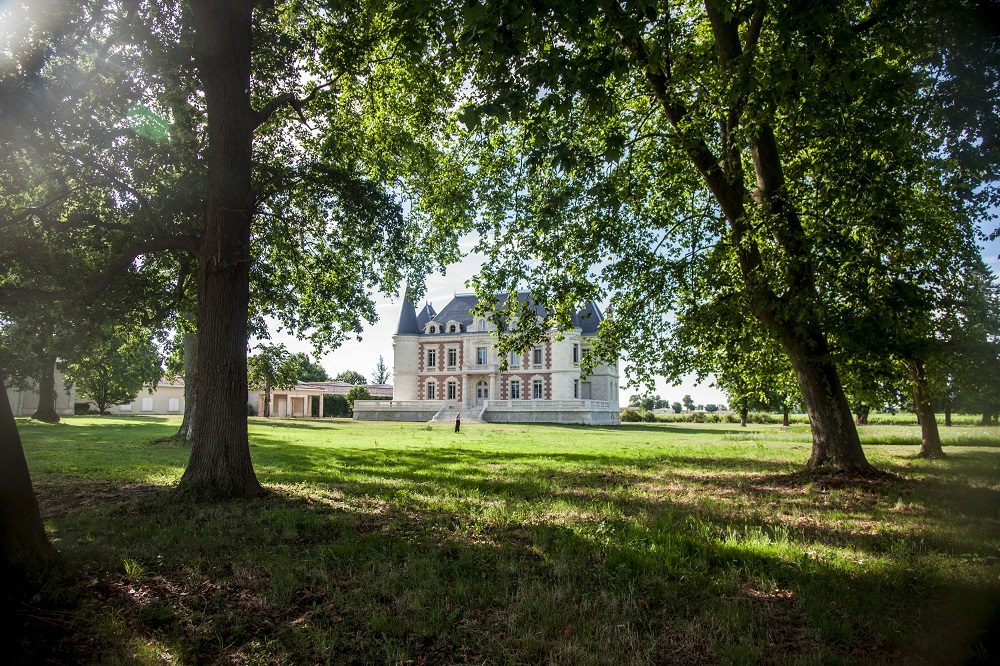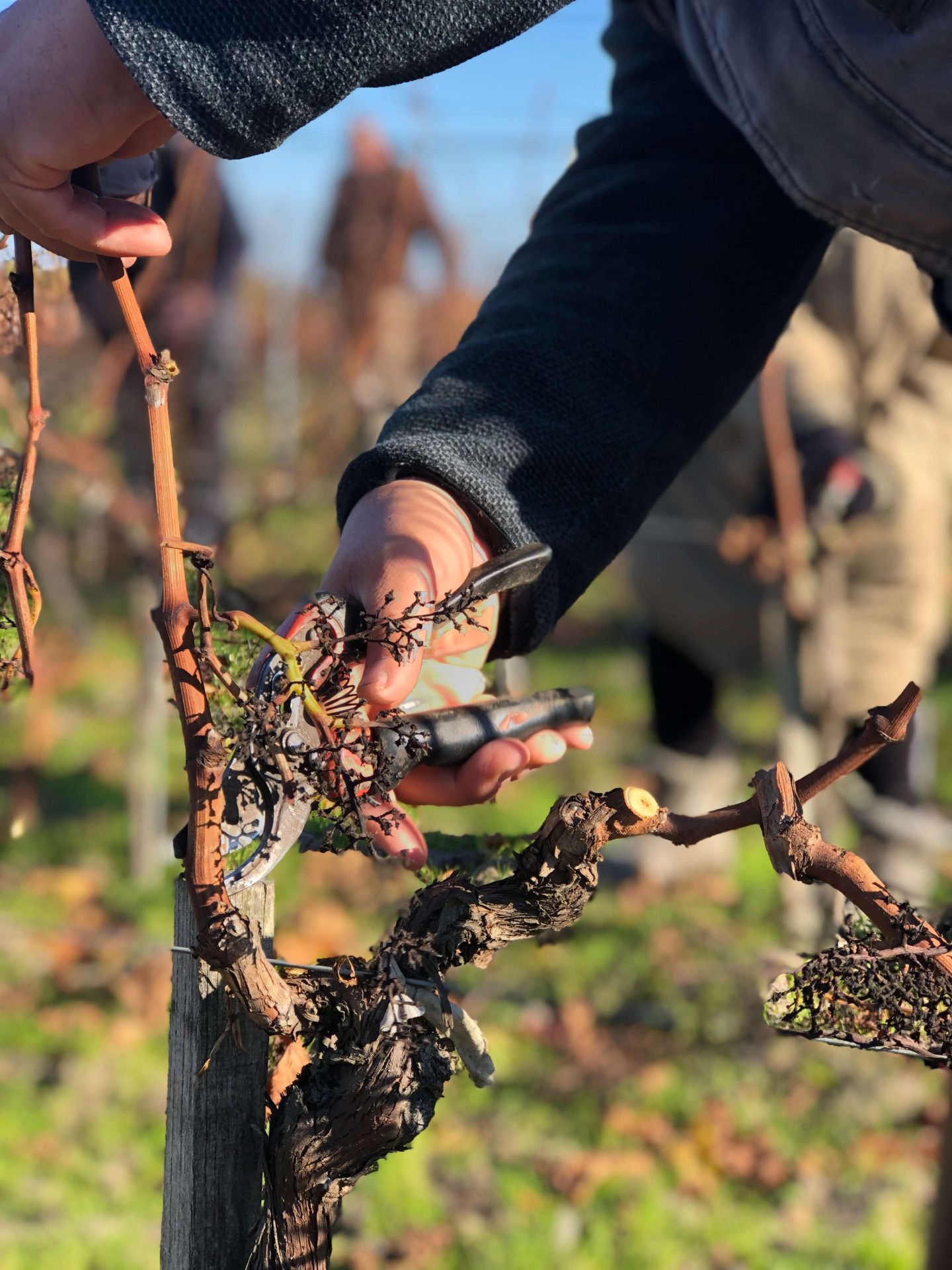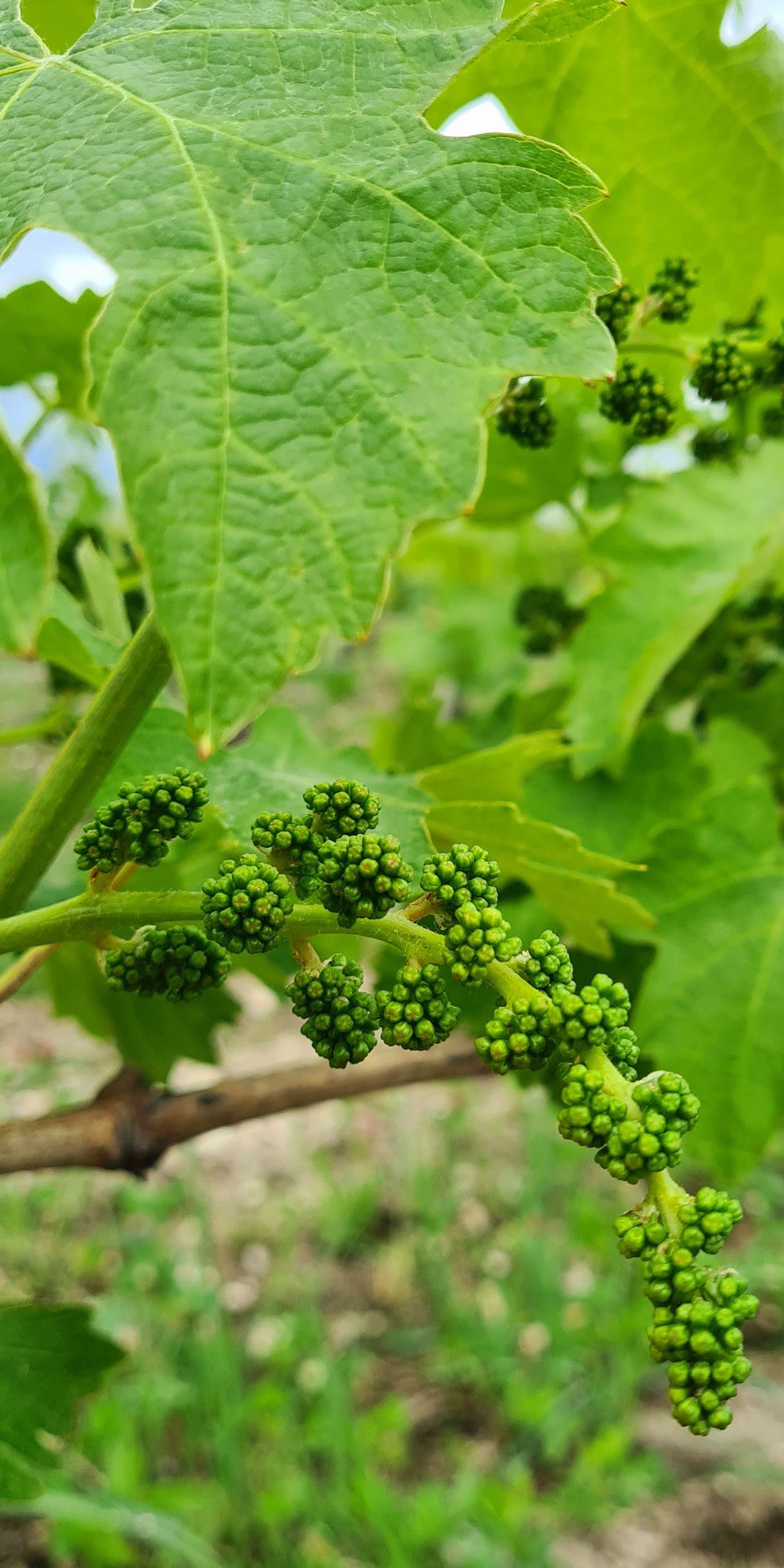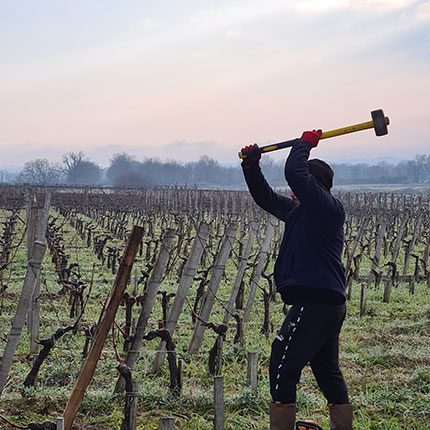A Living CSR Approach
at the Root of our Daily Practices
At Château Lamothe-Bergeron, Corporate Social Responsibility (CSR) is embedded into reality lived every day. It The principles of CSR guide our choices, shapes our practices, and influences all our team members. Recognised by the “Cultivons Demain” (“Sustainable Impact”) label – level 2, our approach is built on their three pillars of sustainable development: environment, social responsibility, and economic balance. Through stable governance, collective decisions and a long-term vision, we are building a Bordeaux wine estate that is respectful and transparent.


Responsible Governance for the Future
A Unique Ownership Model Supported by CAPSSA
Since 2019, Château Lamothe-Bergeron has been owned by CAPSSA, a non-profit social security fund. This distinctive model in the wine industry allows us to operate beyond speculation with a long-term vision centred on the social, cultural, and environmental value of the estate. It also guarantees balanced financial management, resulting in reinvestment into our production tools, people, and land.
A Collective and Transparent Vision
The estate’s CSR strategy is based on constant dialogue between our employees, our operational management team, and our partners. Each year, a CSR report measuring our progress is produced, and made accessible to all. This foundational document ensures coherence in decisions while strengthening the visibility of our commitments for all stakeholders.
Systematic Progress
As part of the “Cultivons Demain / Sustainable Impact” initiative, Château Lamothe-Bergeron monitors indicators related to resource management, working conditions, reduction of inputs, and local engagement. These data points are analysed annually and compared across vintages. This rigorous process enables structured, transparent, and measured progress.


Our People: Our Top Priority
High Workplace Standards
Ensuring a safe and motivating work environment is a priority at Château Lamothe-Bergeron. All employees, permanent or seasonal, benefit from structured working conditions: protective equipment, mandatory training, and individual mentoring. Improvements and upgrades have improved increased safety in our technical buildings, increased comfort in the cellar and vineyard, and simplified team shift rotations. Each employee has an annual review to identify training needs and skills development opportunities.
Equality, Diversity and Daily Dialogue
Respect for people, diversity of backgrounds, and open communication are cornerstones of our organisation’s daily operations. The estate promotes cross-functional collaboration, skill development, and recognition. We foster a culture of simple, direct, and constant dialogue, where everyone can freely express themselves and contribute to the estate’s success. Gender equality, diversity, and transparency are considered key assets for our collective performance.
Developing Young Talent and Connecting to the Community
We regularly host interns, apprentices, and recent graduates, in partnership with wine schools and local institutions. This commitment to developing young talent is reinforced by strong regional anchoring: we use local suppliers, participate in and sponsor regional events, and support other wine tourism activities. In 2024, several team members also led workshops in schools to raise awareness of winegrowing professions. People are truly at the heart of our work, today and tomorrow.
A Certified and Sustainable Viticulture
“Cultivons Demain”, A Collective Sustainability Framework
Since 2022, Château Lamothe-Bergeron has been engaged in the “Cultivons Demain” initiative (also known as “Sustainable Impact”), led by the Bordeaux Wine Council (CIVB). This label, structured around the three pillars of sustainable development, recognises the efforts made on the environmental, social, and economic levels. In 2024, the estate achieved level 2 certification, recognizing our improvements made to our internal organisation, resource management, and territorial anchoring. This recognition rewards the collective work of our teams, and the continuous improvement we pursue each year.
Commitment to Biodiversity and our Natural Resources
Our commitment to the environment is reflected in the following concrete and measurable practices:
- Complete elimination of chemical herbicides, including glyphosate.
- Mechanical soil management and use of green manures.
- Reduction of pesticides and adoption of biocontrol solutions.
- Monitoring biodiversity with the replanting of hedgerows, flower strips, and managed natural spaces.
- Natural trapping systems against pests (moths, leafhoppers).
All these actions help to preserve the vineyard’s living capital and reduce the environmental impact of our work.
Responsible and Forward-Looking Land Management
Winter 2024–2025 marked an important stage for Château Lamothe- Bergeron with the voluntary uprooting of 25 hectares of vines. This decision, taken in response to the international wine market and climate resilience issues, allows us to resize the vineyard for long-term sustainability. The soil will be is left to rest for a time before being replanted with adapted grape varieties according to demand and future needs. This proactive approach reflects our philosophy: producing less but producing better quality, while keeping in mind tomorrow’s challenges and opportunities.




Frequently Asked Questions
Frequently Asked Questions about our CSR Commitments
What does CSR mean for a winery?
Corporate Social Responsibility (CSR) refers to the voluntary integration of social, environmental, and economic concerns into business operations. At Château Lamothe-Bergeron, this translates into sustainable vineyard practices, stable governance, attention to employee well-being, and strong connection to the Médoc wine region.
What does the “Cultivons Demain” label mean?
Also known as “Sustainable Impact”, it is a label that was launched by Bordeaux’s interprofessional wine council to highlight wineries engaged in a structured CSR approach. Château Lamothe-Bergeron achieved level 2 in 2024, recognising our efforts in the social, environmental, and economic areas of our estate.
What specifically have you done in respect to your environmental commitments?
We have eliminated chemical herbicides, implemented mechanical soil management, reduced pesticide use, planted hedgerows, and promoted biodiversity. These actions are tracked and documented each year in our CSR report.
How do you involve your teams in CSR?
Through regular dialogue, training sessions, interactive meetings, and annual individual employee reviews. Our teams actively contribute to implementing environmentally friendly practices, whether in the cellar, the vineyard, or in the estate’s daily management.